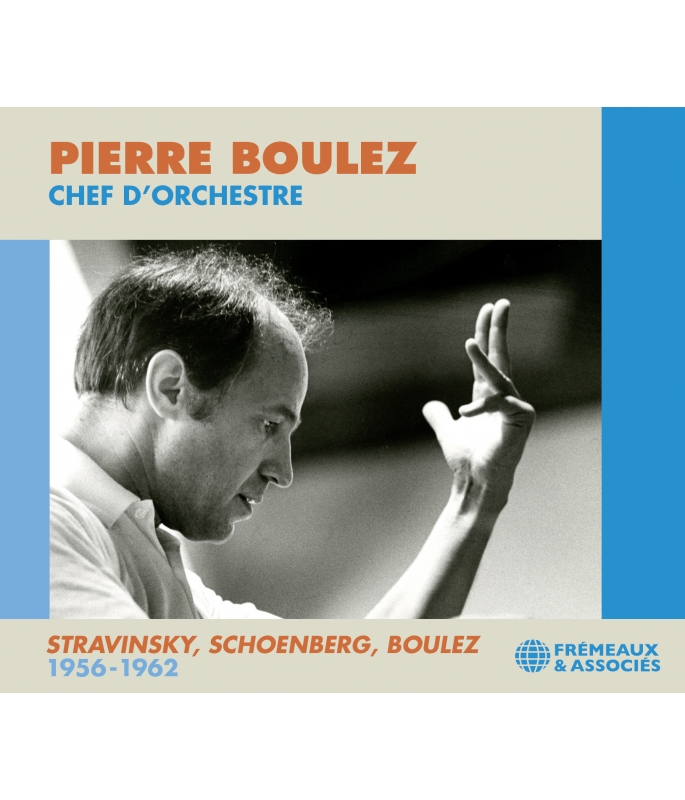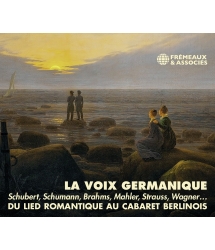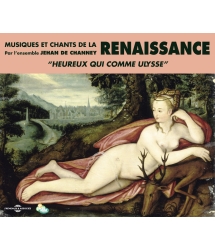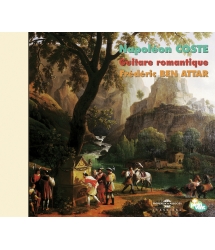- Our Catalog
- Philosophy
- Philosophers of the 20th century and today
- History of Philosophy (PUF)
- Counter-History and Brief Encyclopedia by Michel Onfray
- The philosophical work explained by Luc Ferry
- Ancient thought
- Thinkers of yesterday as seen by the philosophers of today
- Historical philosophical texts interpreted by great actors
- History
- Books (in French)
- Social science
- Historical words
- Audiobooks & Literature
- Our Catalog
- Jazz
- Blues
- Rock - Country - Cajun
- French song
- World music
- Africa
- France
- Québec / Canada
- Hawaï
- West Indies
- Caribbean
- Cuba & Afro-cubain
- Mexico
- South America
- Tango
- Brazil
- Tzigane / Gypsy
- Fado / Portugal
- Flamenco / Spain
- Yiddish / Israel
- China
- Tibet / Nepal
- Asia
- Indian Ocean / Madagascar
- Japan
- Indonesia
- Oceania
- India
- Bangladesh
- USSR / Communist songs
- World music / Miscellaneous
- Classical music
- Composers - Movie Soundtracks
- Sounds of nature
- Our Catalog
- Youth
- Philosophy
- News
- How to order ?
- Receive the catalog
- Manifesto
- Dictionnary











- Our Catalog
- Philosophy
- Philosophers of the 20th century and today
- History of Philosophy (PUF)
- Counter-History and Brief Encyclopedia by Michel Onfray
- The philosophical work explained by Luc Ferry
- Ancient thought
- Thinkers of yesterday as seen by the philosophers of today
- Historical philosophical texts interpreted by great actors
- History
- Books (in French)
- Social science
- Historical words
- Audiobooks & Literature
- Our Catalog
- Jazz
- Blues
- Rock - Country - Cajun
- French song
- World music
- Africa
- France
- Québec / Canada
- Hawaï
- West Indies
- Caribbean
- Cuba & Afro-cubain
- Mexico
- South America
- Tango
- Brazil
- Tzigane / Gypsy
- Fado / Portugal
- Flamenco / Spain
- Yiddish / Israel
- China
- Tibet / Nepal
- Asia
- Indian Ocean / Madagascar
- Japan
- Indonesia
- Oceania
- India
- Bangladesh
- USSR / Communist songs
- World music / Miscellaneous
- Classical music
- Composers - Movie Soundtracks
- Sounds of nature
- Our Catalog
- Youth
- Philosophy
- News
- How to order ?
- Receive the catalog
- Manifesto
- Dictionnary
Stravinsky, Schoenberg, Boulez 1956-1962
Pierre Boulez
Ref.: FA5883
Artistic Direction : Jean-Baptiste Mersiol, livret : Christophe Lointier
Label : FREMEAUX & ASSOCIES
Total duration of the pack : 2 hours 57 minutes
Nbre. CD : 3

Stravinsky, Schoenberg, Boulez 1956-1962
In reaction to the neoclassical resonances that dominated the French musical landscape post-World War II, a few composers - following in the footsteps of the ‘Jeune France’ movement that included Messiaen and Jolivet - made efforts to throw light on the great figures of the modern tradition, namely Webern, Schoenberg, Stravinsky, Berio and a few others. Pierre Boulez was no doubt the most famous of this new orientation’s representatives, a world-renowned composer and teacher who initiated and directed numerous institutions such as the Ircam for example. He was also one of the most respected conductors to wield a baton over the repertoire of his day.
Christophe LOINTIER & Patrick FRÉMEAUX
CD 1 - PIERRE BOULEZ DIRIGE ARNOLD SCHOENBERG (1874-1951) : PIERROT LUNAIRE : PREMIÈRE PARTIE - MONDESTRUNKEN • COLOMBINE • DER DANDY • EINE BLASSE WÄSCHERIN • VALSE DE CHOPIN • MADONNA • DER KRANKE MOND. DEUXIÈME PARTIE - NACHT • GEBET AN PIERROT • RAUB • ROTE MESSE • GALGENLIED • ENTHAUPTUNG • DIE KREUZE. TROISIÈME PARTIE - HEIMWEH • GEMEINHEIT ! • PARODIE • DER MONDFLECK • SERENADE • HEIMFAHRT • O ALTER DUFT. SERENADE OP.24 : MARSCH • MENUETT • VARIATIONEN • SONETT N°217 VON PETRARCA (POUR VOIX ET BASSE) • TANZSCENE • LIED • FINALE.
CD 2 - PIERRE BOULEZ DIRIGE STRAVINSKY & WEBERN : IGOR STRAVINSKY (1882-1971) : RENARD • 3 PIÈCES POUR QUATUOR À CORDES - PIÈCE 1 • 3 PIÈCES POUR QUATUOR À CORDES - PIÈCE 2 • 3 PIÈCES POUR QUATUOR À CORDES - PIÈCE 3 • 3 PIÈCES POUR CLARINETTE - 1 • 3 PIÈCES POUR CLARINETTE - 2 • 3 PIÈCES POUR CLARINETTE - 3 • CONCERTINO POUR 12 INSTRUMENTS • SYMPHONIES D’INSTRUMENTS À VENT (1920-RÉVISION 1947). ANTON WEBERN (1883-1945) SYMPHONIE OP 21 : RUHIG SEHR EITEND • VARIATIONEN. 2 LIEDER, OP.8 : N°1 : DU, DER ICHS NICHT SAGE • N°2 : DU MACHST MICH ALLEIN. 4 LIEDER, OP.13 : N°1 : WIESE IM PARK • N°2 : DIE EINSAME • N°3 : IN, DER FREMDE • N°4 : EIN WINTERABEND. CD 3 - PIERRE BOULEZ DIRIGE PIERRE BOULEZ + LUIGI NONO & LUCIANO BERIO : PIERRE BOULEZ (1925-2016) • LE MARTEAU SANS MAÎTRE : AVANT « L’ARTISANAT FURIEUX » • COMMENTAIRE I DE « BOURREAUX DE SOLITUDE » • L’ARTISANAT FURIEUX • COMMENTAIRE II DE « BOURREAUX DE SOLITUDE » • « BEL ÉDIFICE ET LES PRESSENTIMENTS », VERSION PREMIÈRE • « BOURREAUX DE SOLITUDE » • APRÈS « L’ARTISANAT FURIEUX » • COMMENTAIRE III DE « BOURREAUX DE SOLITUDE » • « BEL ÉDIFICE ET LES PRESSENTIMENTS », DOUBLE • SONATINE POUR FLUTE ET PIANO. BONUS : LUIGI NONO (1924-1990) : INCONTRI. LUCIANO BERIO (1925- 2003) : SERENATA I - FLUTE ET 14 INSTRUMENTS.
DIRECTION ARTISTIQUE : JEAN-BAPTISTE MERSIOL, LIVRET : CHRISTOPHE LOINTIER
-
PisteTitleMain artistAutorDurationRegistered in
-
1Arnold Schoenberg - Pierrot lunaire - MondestrunkenPierre BoulezArnold Schoenberg00:01:461962
-
2Arnold Schoenberg - Pierrot lunaire - ColombinePierre BoulezArnold Schoenberg00:01:321962
-
3Arnold Schoenberg - Pierrot lunaire - Der DandyPierre BoulezArnold Schoenberg00:01:091962
-
4Arnold Schoenberg - Pierrot lunaire - Eine blasse WäscherinPierre BoulezArnold Schoenberg00:01:271962
-
5Arnold Schoenberg - Pierrot lunaire - Valse de ChopinPierre BoulezArnold Schoenberg00:01:101962
-
6Arnold Schoenberg - Pierrot lunaire - MadonnaPierre BoulezArnold Schoenberg00:01:461962
-
7Arnold Schoenberg - Pierrot lunaire - Der kranke MondPierre BoulezArnold Schoenberg00:02:101962
-
8Arnold Schoenberg - Pierrot lunaire - NachtPierre BoulezArnold Schoenberg00:02:111962
-
9Arnold Schoenberg - Pierrot lunaire - Gebet an PierrotPierre BoulezArnold Schoenberg00:00:541962
-
10Arnold Schoenberg - Pierrot lunaire - RaubPierre BoulezArnold Schoenberg00:01:121962
-
11Arnold Schoenberg - Pierrot lunaire - Rote MessePierre BoulezArnold Schoenberg00:01:391962
-
12Arnold Schoenberg - Pierrot lunaire - GalgenliedPierre BoulezArnold Schoenberg00:00:171962
-
13Arnold Schoenberg - Pierrot lunaire - EnthauptungPierre BoulezArnold Schoenberg00:02:011962
-
14Arnold Schoenberg - Pierrot lunaire - Die KreuzePierre BoulezArnold Schoenberg00:02:121962
-
15Arnold Schoenberg - Pierrot lunaire - HeimwehPierre BoulezArnold Schoenberg00:02:111962
-
16Arnold Schoenberg - Pierrot lunaire - Gemeinheit !Pierre BoulezArnold Schoenberg00:00:581962
-
17Arnold Schoenberg - Pierrot lunaire - ParodiePierre BoulezArnold Schoenberg00:01:121962
-
18Arnold Schoenberg - Pierrot lunaire - Der MondfleckPierre BoulezArnold Schoenberg00:00:501962
-
19Arnold Schoenberg - Pierrot lunaire - SerenadePierre BoulezArnold Schoenberg00:01:551962
-
20Arnold Schoenberg - Pierrot lunaire - HeimfahrtPierre BoulezArnold Schoenberg00:01:411962
-
21Arnold Schoenberg - Pierrot lunaire - O alter DuftPierre BoulezArnold Schoenberg00:01:241962
-
22Arnold Schoenberg - Pierrot lunaire - MarschPierre BoulezArnold Schoenberg00:04:081961
-
23Arnold Schoenberg - Pierrot lunaire - MenuettPierre BoulezArnold Schoenberg00:06:281961
-
24Arnold Schoenberg - Pierrot lunaire - VariationenPierre BoulezArnold Schoenberg00:03:341961
-
25Arnold Schoenberg - Pierrot lunaire - Sonett n°217 von PetrarcaPierre BoulezArnold Schoenberg00:02:461961
-
26Arnold Schoenberg - Pierrot lunaire - TanzscenePierre BoulezArnold Schoenberg00:06:261961
-
27Arnold Schoenberg - Pierrot lunaire - LiedPierre BoulezArnold Schoenberg00:02:121961
-
28Arnold Schoenberg - Pierrot lunaire - FinalePierre BoulezArnold Schoenberg00:04:521961
-
PisteTitleMain artistAutorDurationRegistered in
-
1Igor Stravinsky - RenardPierre BoulezIgor Stravinsky00:14:501962
-
2Igor Stravinsky - 3 Pièces Pour Quatuor à ordes - Pièce 1Pierre BoulezIgor Stravinsky00:00:541962
-
3Igor Stravinsky - 3 Pièces Pour Quatuor à cordes - Pièce 2Pierre BoulezIgor Stravinsky00:01:511962
-
4Igor Stravinsky - 3 Pièces Pour Quatuor à cordes - Pièce 3Pierre BoulezIgor Stravinsky00:03:311962
-
5Igor Stravinsky - 3 Pièces pour clarinette - 1Pierre BoulezIgor Stravinsky00:01:401962
-
6Igor Stravinsky - 3 Pièces pour clarinette - 2Pierre BoulezIgor Stravinsky00:00:591962
-
7Igor Stravinsky - 3 Pièces pour clarinette - 3Pierre BoulezIgor Stravinsky00:01:111962
-
8Igor Stravinsky - Concertino pour 12 InstrumentsPierre BoulezIgor Stravinsky00:05:411962
-
9Igor Stravinsky - Symphonies d’instruments à ventPierre BoulezIgor Stravinsky00:08:281962
-
10Anton Webern - Symphonie, op. 21 - Ruhig sehr eitendPierre BoulezAnton Webern00:07:201956
-
11Anton Webern - Symphonie, op. 21 - VariationenPierre BoulezAnton Webern00:02:431956
-
12Anton Webern - Lieder, op.8 - N°1 : Du, der ichs nicht sagePierre BoulezAnton Webern00:01:021956
-
13Anton Webern - Lieder, op.8 - N°2 : Du machst mich alleinPierre BoulezAnton Webern00:01:031956
-
14Anton Webern - Lieder, op.13 - N°1 : Wiese im parkPierre BoulezAnton Webern00:02:071956
-
15Anton Webern - Lieder, op.13 - N°2 : Die EinsamePierre BoulezAnton Webern00:01:201956
-
16Anton Webern - Lieder, op.13 - N°3 : In, der FremdePierre BoulezAnton Webern00:01:071956
-
17Anton Webern - Lieder, op.13 - N°4 : Ein WinterabendPierre BoulezAnton Webern00:01:551956
-
PisteTitleMain artistAutorDurationRegistered in
-
1Pierre Boulez - Le marteau sans maître - Avant « L’artisanat furieux »Pierre BoulezPierre Boulez00:01:271956
-
2Pierre Boulez - Le marteau sans maître - Commentaire I de « Bourreaux de solitude »Pierre BoulezPierre Boulez00:03:501956
-
3Pierre Boulez - Le marteau sans maître - L’artisanat furieuxPierre BoulezPierre Boulez00:02:041956
-
4Pierre Boulez - Le marteau sans maître - Commentaire II de « Bourreaux de solitude »Pierre BoulezPierre Boulez00:03:121956
-
5Pierre Boulez - Le marteau sans maître - « Bel édifice et les pressentiments », version premièrePierre BoulezPierre Boulez00:03:081956
-
6Pierre Boulez - Le marteau sans maître - « Bourreaux de solitude »Pierre BoulezPierre Boulez00:04:081956
-
7Pierre Boulez - Le marteau sans maître - Après « L’artisanat furieux »Pierre BoulezPierre Boulez00:00:501956
-
8Pierre Boulez - La marteau sans maître - Commentaire III de « Bourreaux de solitude »Pierre BoulezPierre Boulez00:04:481956
-
9Pierre Boulez - La marteau sans maître - « Bel édifice et les pressentiments », doublePierre BoulezPierre Boulez00:06:571956
-
10Pierre Boulez - La marteau sans maître - Sonatine pour flute et pianoPierre BoulezPierre Boulez00:11:401956
-
11Luigi Nono - IncontriPierre BoulezLuigi Nono00:05:461958
-
12Luciano Berio - Serenata I - Flute et 14 instrumentsPierre BoulezLuciano Berio00:10:171958
PIERRE BOULEZ
Chef d’orchestre
Stravinsky, Schoenberg, Boulez 1956-1962
PIERRE BOULEZ CONDUCTOR - STRAVINSKY, SCHOENBERG, BOULEZ, etc. 1956-1962
By Christophe Lointier
If we asked a layman to name two composers who personified the contemporary music of France in the second half of the 20th century, no doubt but that Olivier Messiaen (1908-1992) and Pierre Boulez (1925-2016) would the first two musicians to come to his lips.
Messiaen, the elder, whose reach in the educational field had no equal, received praise very early for his poignant Quatuor pour la fin du temps — a work within everyone’s reach that he wrote in 1941 while interned in a prisoner-of-war camp — and then, much later, for his opera Saint-François d’Assise, crowning two decades of musical research that combined the Christian faith with transcriptions of birdsong. As for the younger Berlioz, he took lessons in advanced harmony from Messiaen at the Conservatoire de Paris; he also admired the “creative spontaneity” of the latter, whom he considered this “master”. Berlioz was capable of bridging different cultures, and went on to become no doubt one of the greatest composers of our times.
The creator
The opus of Pierre Boulez is hardly massive (some sixty works in all) yet it is punctuated by major pieces—regularly improved—that undermined the foundations of musical academicism. Polyphonie X, first performed in 1951, caused a scandal due to its serialism, which was judged too theoretical and intransigent. In a letter to a friend, Berlioz wrote, “There are places where the synthesis of language and sensibility seemed striking, and others where the musical “making” of it was not up to what I wished to express or, conversely, this “making” of it attains an independence and undoes what I desired to express.” Boulez would mend his ways a little later, with Le marteau sans maître based on René Char’s poems, by operating a relative softening of his musical language in more “melodic” accents, propped up with orchestration that was “far eastern.” In Pli selon pli, a tribute to Mallarmé, the composer would develop the refinement of those famous “structures” even more visibly and introduce a principle of liberty into the work, by means of the choice of several versions that he gave to performers, and also a certain improvisational licence within a predetermined framework. There would follow the suite Rituel in memoriam Bruno Maderna, the musical grave (1973) composed in tribute to his recently-deceased composer-friend and founded on an ensemble of seven notes that relate to the name “Maderna.” And finally Répons, an electroacoustic work that requires a particular mechanism for the stage, namely an instrumental ensemble situated in the centre of the audience, with six soloists placed around the limits of the room and an electric device that interacted with the soloists in real time.
The initiator
While Boulez was incontestably the leader of the French avant-garde and research into sound, throughout his life in music he would also plead the cause for spreading contemporary music, by turns as a teacher or in directing various institutions: from 1976 to 1995 he would hold the professorial chair in the “Invention, technique and language of music” at the Collège de France, with the aim of increasing public awareness of various practices in composition, and the analysis of works of music. However, while it’s true that music can be elucidated, above all it also has to be played, and Pierre Boulez would consistently promote that. As early as 1954 he created the “Domaine musical”, a concert society whose repertoire, in its first instance made up of ancient music, gradually changed its orientation to works of the 20th century and the avant-garde. Later, at the request of President Georges Pompidou, Berlioz founded the Ircam (the acronym for “Institut de recherche et coordination acoustique/musique”)—today still the world’s most sought-after centre for young creators—and the famous “Ensemble intercontemporain,” a group of thirty-one soloists dedicated exclusively to performing contemporary music. We can add that Boulez, whose influence on the music world grew without pause (sometimes earning him caustic criticism), also became involved in such great projects as the Bastille Opera, the “Cité de la Musique” and the “Philharmonie de Paris.”
The maestro
At the dawn of the fifties, as the “Domaine musical” changed its inclination more towards modern repertoire, Pierre Boulez was experiencing difficulties in finding conductors willing to perform those works. His only solution was to conduct their first performances himself, yet this handicap laid the foundations for an exceptional career that led him to conduct the largest orchestras, despite the fact that some members of the music milieu deemed his conducting too liberal and insensitive. At the beginning of the sixties, he began an international career, first with the ‘Residentie Orkest’ in The Hague, and then with Amsterdam’s Concertgebouw. In Paris in 1963, he was given a mandate to celebrate The Rite of Spring (for the 50th anniversary of its first performance) before going to Bayreuth to conduct Parsifal, one of the works that Berlioz loved most. Other contracts followed: to lead the Cleveland Orchestra, and then the BBC Symphony Orchestra in turn with the New York Philharmonic (taking over from Leonard Bernstein). Later would come the Chicago Symphony Orchestra. We can also note that Pierre Boulez returned to Wagner’s den from 1976 to 1980, the occasion being the production of a new version of The Ring staged by Patrice Chéreau that would make history, earning the two men almost an hour and a half’s applause at its ultimate performance, with the curtain rising and falling one hundred and one times.
Nevertheless, the prestigious career of the French conductor should not conceal his first aims, notably the celebration of the father figures of France’s modern music legacy, and training the spotlight on the country’s contemporary creations. The present set consequently offers the maestro’s orchestral performances, recorded between 1956 and 1962, of works by Schoenberg, Webern, Stravinsky and composers close to Pierre Boulez, Luigi Nono and Luciano Berio, who illustrate the multiplicity of the inventiveness of the 20th century in music and sound: spoken-sung works, polytonality, twelve-tone music and serialism, among others.
Christophe Lointier
© Frémeaux & Associés 2024
PIERRE BOULEZ CHEF D’ORCHESTRE – STRAVINSKY, SCHOENBERG, BOULEZ, etc. 1956-1962
CD 1 : PIERRE BOULEZ DIRIGE
ARNOLD SCHOENBERG (1874-1951)
PIERROT LUNAIRE :
Première partie
1. Mondestrunken 1’46
2. Colombine 1’32
3. Der Dandy 1’09
4. Eine blasse Wäscherin 1’27
5. Valse de Chopin 1’10
6. Madonna 1’46
7. Der kranke Mond 2’10
Deuxième partie
8. Nacht 2’11
9. Gebet an Pierrot 0’54
10. Raub 1’12
11. Rote Messe 1’39
12. Galgenlied 0’17
13. Enthauptung 2’01
14. Die Kreuze 2’12
Troisième partie
15. Heimweh 2’11
16. Gemeinheit ! 0’58
17. Parodie 1’12
18. Der Mondfleck 0’50
19. Serenade 1’55
20. Heimfahrt 1’41
21. O alter Duft 1’24
LP ADES MA 30LA 524 (1962)
SERENADE OP.24
22. Marsch 4’08
23. Menuett 6’28
24. Variationen 3’34
25. Sonett n°217 von Petrarca
(pour voix et basse) 2’46
26. Tanzscene 6’26
27. Lied 2’12
28. Finale 4’52
1 à 21 : LP ADES MA 30LA 524 (1962)
Pierrot Lunaire – Trois Fois Sept Poèmes de Albert Giraud – version allemande de Otto Erich Hartleben. Récitante : Helga Pilarczyk. Piano : Maria Bergmann. Flûte et Piccolo : Jacques Castagner. Clarinette : Guy Deplus. Clarinette basse : Louis Montaigne. Violon : Luben Yordanoff. Alto : Serge Collot. Violoncelle : Jean Huchot.
22 à 28 : LP ADES MA 30 LA 525 (1962)
Serenade Op.24. Clarinette : Guy Deplus. Clarinette basse : Louis Montaigne. Mandoline : Paul Grund. Guitare : Paul Stingl. Violon : Luben Yordanoff. Alto : Serge Collot. Violoncelle : Jean Huchot. Basse : Louis-Jacques Rondeleux.
1 à 28 : Enregistrés à Paris en 1961 pour la collection « DOMAINE MUSICAL ».
CD 2 : PIERRE BOULEZ DIRIGE
STRAVINSKY & WEBERN
IGOR STRAVINSKY (1882-1971)
1. Renard 14’50
2. 3 Pièces Pour Quatuor à cordes – Pièce 1 0’54
3. 3 Pièces Pour Quatuor à cordes – Pièce 2 1’51
4. 3 Pièces Pour Quatuor à cordes – Pièce 3 3’31
5. 3 Pièces pour clarinette – 1 1’40
6. 3 Pièces pour clarinette – 2 0’59
7. 3 Pièces pour clarinette – 3 1’11
8. Concertino pour 12 Instruments 5’41
9. Symphonies d’instruments à vent (1920-révision 1947) 8’28
LP ADES MA 30 LA 541 (1962)
ANTON WEBERN (1883-1945)
SYMPHONIE OP 21
10. Ruhig sehr eitend 7’20
11. Variationen 2’43
2 Lieder, Op.8
12. N°1 : Du, der ichs nicht sage 1’02
13. N°2 : Du machst mich allein 1’03
4 Lieder, Op.13
14. N°1 : Wiese im park 2’07
15. N°2 : Die Einsame 1’20
16. N°3 : In, der Fremde 1’07
17. N°4 : Ein Winterabend 1’55
1 à 9 : LP ADES MA 30 LA 541 (1962)
1 : Livret de Igor Stravinsky – Traduction française de C-F Ramuz. Voix Tenor : Jean Giraudeau, Louis Devos. Basse : Louis-Jacques Rondeleux et Xavier Depraz. Cimballom : Elemer Kiss.
2 à 4 : Quatuor Parrenin : Violons : Jacques Ghestem, Jacques Parrenin. Alto : Michel Walès. Violoncelle : Pierre Penassou.
5 à 7 : Clarinette : Guy Deplus.
8 - 9 : Trombone ténor : René Allain. Trombone basse : Maurice Suzan. Basson : André Razbot, Jean-Pierre Laroque. Violoncelle : Pierre Penassou. Clarinette : Guy Deplus. Cor anglais : Paul Taillefer. Flûte : Jacques Catagner. Hautbois : Claude Maisonneuve. Trompette : Jacques Lecointre, Pierre Pollin. Violon : Jacques Parrenin.
10 à 17 : LP VEGA C 30 A 66 (1956) – LES CONCERTS DU DOMAINE MUSICAL – SAISON 1956 – 4ème CONCERT - Enregistré sous les auspices du conseil international de la musique avec le concours de l’Unesco. Petit Théâtre Marigny.
CD 3 : PIERRE BOULEZ DIRIGE PIERRE
BOULEZ + LUIGI NONO & LUCIANO BERIO
PIERRE BOULEZ (1925-2016)
LE MARTEAU SANS MAÎTRE
1. Avant « L’artisanat furieux » 1’27
2. Commentaire I
de « Bourreaux de solitude » 3’50
3. L’artisanat furieux 2’04
4. Commentaire II
de « Bourreaux de solitude » 3’12
5. « Bel édifice et les pressentiments », version première 3’08
6. « Bourreaux de solitude » 4’08
7. Après « L’artisanat furieux » 0’50
8. Commentaire III
de « Bourreaux de solitude » 4’48
9. « Bel édifice et les pressentiments »,
double 6’57
10. Sonatine pour flute et piano 11’40
BONUS :
LUIGI NONO (1924-1990)
11. Incontri 5’46
LUCIANO BERIO (1925- 2003)
12. Serenata I - Flute et 14 instruments 10’17
1 à 9 : LP VEGA C 35 A 67 (1956)- Texte : René Char. Chant : Marie-Thérèse Cahn. Flûte : Jacques Tiberge. Alto : Serge Collot. Guitare : Paul Stingl. Xylorimba : P. Naudin. Percussions : A. Cavaillé. Enregistré sous les auspices du conseil international de la musique avec le concours de l’Unesco
11 : LP VEGA C 30 A 66 (1956)- LES CONCERTS DU DOMAINE MUSICAL – SAISON 1956 – 4ème CONCERT - Enregistré sous les auspices du conseil international de la musique avec le concours de l’Unesco. Chant : Jeanne Hericard. Petit Théâtre Marigny.
10 & 12. LP VEGA C 30 A 139 (1958) - LES CONCERTS DU DOMAINE MUSICAL – SAISON 1957. Flûte : Severino Gazzelloni, David Tudor.










